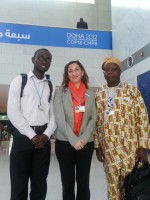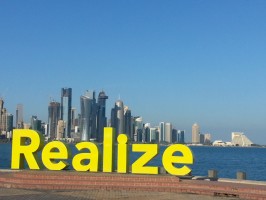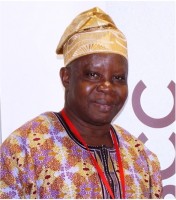Published December 19, 2012
by iris_author
The following is the schedule for the winter semester:
Posted in: Events
Published December 19, 2012
by iris_author
Posted in: Events
Published December 19, 2012
by iris_author
The second annual IACPES Training Week in Atmospheric Chemistry and Physics will be held the week of June 10-14, 2013 at York University.
We ask that all IACPES students put this week on hold. We are happy to have investigators and collaborators attend as well.
More details will be forthcoming; they will be communicated as they come available.
We look forward to seeing you all in June.
Posted in: Events | Opportunities
Published December 17, 2012
by iris_author
There was once a time when a love for the winter season was tied with a sense of Canadian identity. Winter was exciting because it was that chance to break out the skates, find a sweet hill to toboggan on and build the most stylish snowman in the neighbourhood. While this affinity for the season may still be true for some places in Canada it seems as if the love is just no longer the same in Toronto. We hear it everyday when we turn on the news. If the temperature is above seasonal the weather person will declare it “a great day!” (without the slightest reference to climate change). But if the temperature is in fact seasonal then better take a seat, because they've got bad news for you!
I've already stopped watching the weather channel over my frustration for this attitude but it’s getting harder to escape. The other night it snowed a bit in Toronto and my newsfeed on facebook was overtaken by status updates along the lines of: “Go away old man winter” and “Can global warming hurry up already and stop making it so cold!” While these statements may seem harmless, it serves to reinforce a hideous culture that trivializes the seriousness of climate change and is quick to pin any person conscious of the issues as a radical, treehugger, crazy, whatever.
We shouldn’t have to wait for events like Hurricane Sandy to be our wake-up call. We are living in climate change and the alarms should have been ringing years ago. For me, the snowfall the other day was comforting given the fact that there was hardly any snow last year and in 2009, for the first time in 162 years, there was no snowfall at all in November!
In short, I think it’s time for us to stop and embrace the winter season again. Maybe then we can be able to turn our disappointment for what is sure to be another year of record breaking mild temperatures into outrage, the kind of outrage that demands City Council keep their ban on plastic bags, pushes for bike lanes and advocates for a meaningful long-term energy strategy.
Will this change in attitude solve all environmental problems? Probably not. But it’s a step (amongst many) that should be taken to start a real adult conversation about important issues.
By: Enrique Miranda
Posted in: Blogs | Students Speak
Published December 8, 2012
by dbazely


Professor Babatunde Ajayi (School of Agriculture and Agricultural Technology, Nigeria)) and Mr. Isaiah Owolabi (Project HACEY, Nigeria), York University accredited delegates to COP 18 of UNFCCC can be seen, at left, with Philosophy Department professor, Idil Boran, along with other pictures of Doha and the convention centre.

Here is Professor Ajayi’s biography – WELCOME to the York University Delegation during COP 18!
- See more at: http://www.irisyorku.ca/category/blog/director-blog/#sthash.gxRVI9Pj.dpufNigeria), York University accredited delegates to COP 18 of UNFCCC can be seen, at left, with Philosophy Department professor, Idil Boran, along with other pictures of Doha and the convention centre.
ABOUT PROF. BABATUNDE AJAYI - profile kindly supplied by Project HACEY
 "His area of research is the production of Bio-composites materials from wood and agricultural wastes. Currently, he is working on the production of plastic bonded composites using virgin plastic (HPDE), recycled plastic (LPDE), and used car battery case as binders. He is also investigating the suitability of agricultural wastes for the manufacture of cement bonded composites as affordable products for core low cost housing for low income earners. Professor Babatnde Ajayi was born on 25th August, 1955 in Ijan Ekiti, Nigeria. He obtained his Diploma in Forestry at the school of Forestry Ibadan, PGD in Timber and Material Technology at High- Wycombe, UK in 1986, MSc in Forest Industries Technology at Bangor, UK in 1990 and a PhD in Wood Science and Bio-Composites Technology from the Federal University of Technology, Akure in 2000. He assumed the status of a Professor in 2010 and he is currently the Head of Department of Forestry and Wood Technology, Federal University of Technology, Akure, Nigeria. He has published more than 50 papers in reputable local and international journals and presented papers at 33 conferences and professional meetings.
"His area of research is the production of Bio-composites materials from wood and agricultural wastes. Currently, he is working on the production of plastic bonded composites using virgin plastic (HPDE), recycled plastic (LPDE), and used car battery case as binders. He is also investigating the suitability of agricultural wastes for the manufacture of cement bonded composites as affordable products for core low cost housing for low income earners. Professor Babatnde Ajayi was born on 25th August, 1955 in Ijan Ekiti, Nigeria. He obtained his Diploma in Forestry at the school of Forestry Ibadan, PGD in Timber and Material Technology at High- Wycombe, UK in 1986, MSc in Forest Industries Technology at Bangor, UK in 1990 and a PhD in Wood Science and Bio-Composites Technology from the Federal University of Technology, Akure in 2000. He assumed the status of a Professor in 2010 and he is currently the Head of Department of Forestry and Wood Technology, Federal University of Technology, Akure, Nigeria. He has published more than 50 papers in reputable local and international journals and presented papers at 33 conferences and professional meetings.
In 2011, he received a Merit Award for Local Raw Materials Content, Research and Development from the Raw Materials Research and Development Council of Nigeria at TECHNO-EXPO 2011 (A Technology and Innovative Fair) in Abuja, Nigeria. He also exhibited his work at the United Nations Geneva- 2010 Exhibitions of Innovative Wood Products and for the 2011 International Year of the Forest.
He is a member of many professional bodies including the Institute of Wood Science, U.K., Commonwealth Forestry Association, U.K., Forest Products Society, U.S.A., Forestry Association of Nigeria, Nigerian Society for Environmental Management, Forest and Forest Products Society, Nigeria, International Union of Forestry Research Organization, International Inorganic Bonded Composites, USA and Society of Wood Science and Technology."
About SAAT - from the website.
Over the past years, the School of Agriculture and Agricultural Technology (SAAT), like every other school or faculty in Nigerian Universities, focused essentially on teaching and research (basic and applied). It determined its teaching and research agenda within the framework provided by the National Universities Commission, the main regulatory body, and the perceived needs of the society. The scope of this teaching and research agenda has been severally limited by the relatively dwindling government funding for the universities. This has led to most teaching and research facilities (laboratories, lecture rooms, libraries, office accommodation, communication and information equipment. etc) becoming obsolete, and inadequate to satisfy the aspiration of the school to meet the challenges of teaching and research in Nigerian Agriculture in the 21st century. In order to be at the cutting edge of agriculture and agricultural technology and impact positively and significantly on Nigeria’s rural, agricultural and agro-industrial landscape, the school has accepted a paradigm shift towards “the town and gown”. In this new paradigm, SAAT will not only teach and research, but will also render services that can transform the Nigerian socioeconomic and technological landscape. The services will be rendered to its stakeholders within the university and in larger Nigerian society.
The implication of the new paradigm is that SAAT’s work programme agenda will be needs driven Teaching and research will become more tailored to needs of the society than were previously case while SAAT will devote a substantial proportion of its resources and expertise to rendering services to its stakeholders within the larger Nigerian society. A further implication of the new paradigm is that the school will be more involved in the activities of the larger Nigeria society, by rendering services and soliciting for support in terms of collaboration, patronage, grants and endowment.
Akure is NE of Lagos, about a third of the way to Abuja."
Posted in: Blogs | IRIS Director Blog
Published December 7, 2012
by dbazely

View Doha UNFCCC COP 18 in a larger map
In addition to our York University professors, who are at the UNFCCC in Doha (see map above, and skyline at right), two members of Project HACEY, a capacity-building NGO working in the health and sustainability sectors, were able to be accredited through York, as NGO Observers at the UNFCCC COP 18. We will have more about our Project HACEY colleagues in a future post. Project HACEY is based in Lagos, Nigeria.
Dawn Bazely
Posted in: Blogs | IRIS Director Blog
Published December 7, 2012
by dbazely
"Greetings from Doha. I want to begin by saying that the conference has been
incredibly informative. I went to some impressive panels and met very
interesting people.
The country negotiations are, as you know, going slowly and the expectations are
modest.
The side events, panels, and initiatives are absolutely fascinating. As the
negotiations are going slowly, there is an impressive effort at figuring out
alternative pathways for attending to the issue of climate change. The
dominant idea at Doha 2012 is the need to think in innovative ways on how the
issue can be dealt with. I also found that there is a heavy focus on
instruments other than traditional policy approaches. For example, the idea of
"innovative and green financing" is central to the discussions. So is the idea
of considering Development Banks as instruments that could facilitate climate
financing, transfer of green technology, and green development.
Yesterday, I went to a fascinating panel on women and climate change, where the
idea of making climate instruments gender sensitive was advanced.
I hope to give a full account of all my observations on my return. I haven't
had too much time writing, because I am trying to maximize my observations and
have been focused on absorbing new insights as much as possible"
Posted in: Blogs | IRIS Director Blog